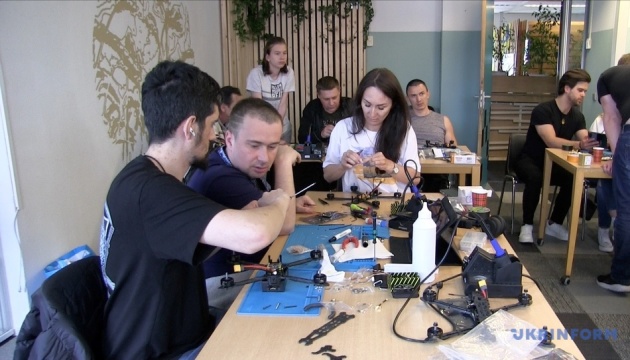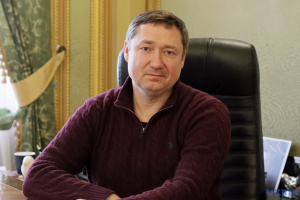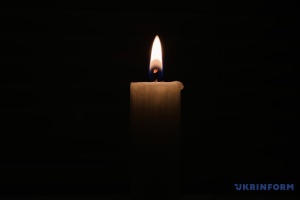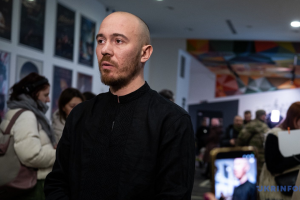
In Netherlands, Ukrainian soldiers undergoing rehabilitation and volunteers assemble drones for AFU
This was reported by an Ukrinform correspondent.
Volunteers are looking for funding and ordering parts, while the military assemble drones. Professional instructors help beginners. The finished device is thoroughly tested before being sent to Ukraine.
"We are currently holding drone assembly workshops in Utrecht. We invite Ukrainian soldiers undergoing rehabilitation in the Netherlands, as well as refugees... We have people who are dealing with drones, electronics, and soldering for the first time. Building a community of people who are interested in drones is very important. We are also contributing to the rehabilitation of our military, giving them an additional opportunity to fulfil themselves and continue working for the victory of Ukraine," said project initiator Yana Rudenko, who is also a co-founder of the ABBA (Adriatic-Baltic-Black-Azov Seas) student association.
According to her, there are many Dutch and foreigners who want to join the drone assembly process.
"If a person donates the full cost of a drone, we give them the opportunity to come to a workshop and assemble the drone themselves. This way, the person sees the result of their donation... DroneAid has been around for several months. In three months - February, March and April - we held 8 workshops and assembled 65 drones. This is a certain success. Participants assemble drones together, which we then pass on to the Armed Forces of Ukraine to perform their tasks," Rudenko said.
DroneAid cooperates with Eyes on Ukraine, a non-profit organisation (ANBI) from the Netherlands.
As Ukrinform reported earlier, Eyes on Ukraine was established on 27 February 2022 and has raised about one million euros to date. Since the beginning of the full-scale invasion, it has been supplying drones and spare parts to the Armed Forces of Ukraine. Since March 2022, about 700 drones have been delivered, as well as about 25 vehicles, buses, generators of various capacities (from large 500-kilowatt to small ones), field kitchens, and humanitarian aid.












